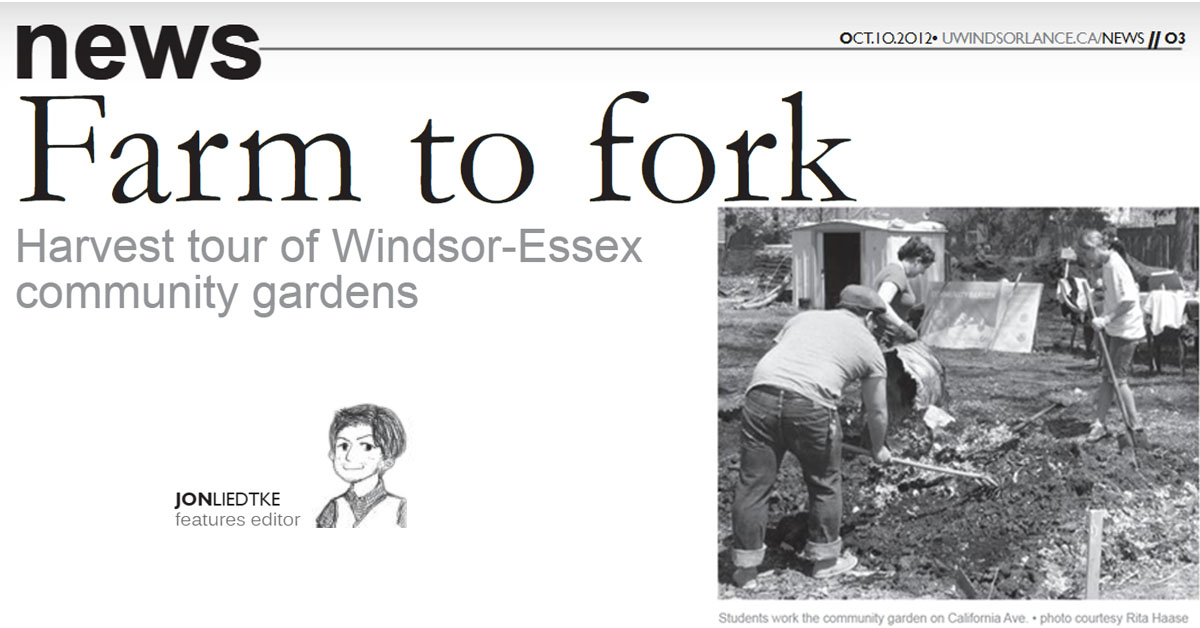UWindsor Lance
Issue 15, Volume 85
Oct. 10, 2012
Jon Liedtke
Harvest tour of Windsor-Essex community gardens
A new community collective wants to show food conscience Windsorites there’s plenty of sustainable and healthy offerings coming from area community gardens.
The Windsor and Essex County Community Garden Collective is hosting a bus tour of community gardens throughout the region on Oct. 14. The event, which costs $5 and includes lunch, will depart from locations in the city and county and end at the University of Windsor’s campus community garden.
The campus leg of the tour will feature a walk through the garden, baked goods, a bluegrass band and activities.
Rita Haase, who helped initiate the Campus Community Garden Project in 2010, is the current co-ordinator of the garden. She said the project seeks to “produce food for people in need, educate people about food production, and to make the campus a more sustainable, greener area.”
Haase is also a member of the Environmental Committee, a university group that strives to make the campus a more environmentally sustainable place.
“The real value is not the pounds of food that we get,” explained Adam Wright, a UWindsor student who volunteered as a garden attendant during the summer. “We’re not eliminating grocery stores, but what we are doing is creating an inclusive space where people of all generations from all different backgrounds can share information and build and strengthen the community.”
The campus community garden features a wide variety of plants, flowers, fruit bushes and roughly 40 different varieties of vegetables. Hasse explained that
because this is an organic garden, companion planting is very important. “To
have a lot of different plants growing side-by-side benefits each other.”
Some staff members of Green Bean Cafe volunteer in the campus community garden, and owner Benjamin Davidson explained that this overlap has allowed for some of the food grown in the garden to be served in his restaurant.
Davidson makes an attempt to purchase locally sourced food because he believes it important to support the local economy and our local farmers.
“We also find it is something people are more and more interested in … customers are requesting it.”
Farm to Fork
Issue 15, Volume 85
Oct. 10, 2012
Jon Liedtke
Page 3
Jon Liedtke was the Features and Opinions Editor, Advertising Manager and Deficit Consultant at the UWindsor Lance.




Leave a Reply